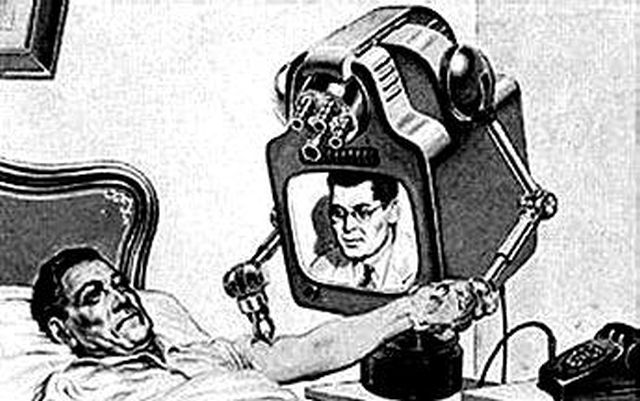Teledoctors: Cost Effective and Available Healthcare Solutions
Teledoctors: Cost Effective and Available Healthcare Solutions
Blog Article
Discovering the Benefits and Obstacles of Teledoctors in Modern Medical Care
As the healthcare landscape evolves, teledoctors have actually arised as a crucial element in linking voids in clinical gain access to and efficiency. While they use the promise of getting to remote locations and minimizing functional costs, the journey is not without its difficulties. Privacy issues, the digital divide, and cybersecurity threats posture considerable obstacles that need to be dealt with to harness their full capacity. Just how can the healthcare industry balance these benefits with the intrinsic difficulties? This dilemma welcomes a much deeper expedition right into the transformative duty of teledoctors in forming the future of medical care shipment.
Expanding Accessibility to Treatment
Telemedicine has emerged as a critical innovation in modern-day health care, considerably increasing accessibility to look after diverse populaces. By leveraging digital innovation, teledoctors have transformed the typical health care shipment version, making it feasible for people in remote or underserved locations to receive prompt medical consultation. This advancement is particularly beneficial for individuals living in country communities, where the shortage of healthcare centers and experts frequently leads to postponed or poor treatment.
Teledoctors are instrumental in bridging the gap created by geographical barriers. Through virtual examinations, clients can access a large variety of healthcare solutions without the demand for extensive travel.
The assimilation of teledoctors into health care systems likewise supports the management of public wellness crises by facilitating rapid feedback and triage. Throughout pandemics, for instance, digital consultations reduce the worry on physical health care centers, decreasing exposure threats for both patients and doctor. As telemedicine remains to progress, it assures to reshape the landscape of medical care accessibility, making it extra comprehensive and efficient.
Cost-Effectiveness of Teledoctors
The cost-effectiveness of teledoctors is a substantial aspect driving their widespread fostering in healthcare systems. By reducing the requirement for physical infrastructure and in-person check outs, teledoctors offer a more budget friendly option to traditional healthcare delivery. This version allows doctor to reduced functional costs, such as those connected with maintaining physical offices and utilizing comprehensive on-site staff. teledoctors. As a result, these savings can be handed down to patients in the form of minimized assessment charges, making healthcare a lot more easily accessible to a wider populace.
Additionally, teledoctors assist in a much more reliable use medical care sources by minimizing unneeded emergency clinic check outs and medical facility admissions. People can access timely assessments for small ailments or follow-up treatment, which aids to alleviate the burden on overstretched health care centers. This efficiency not only causes set you back financial savings for doctor yet additionally minimizes the economic strain on clients who might otherwise encounter pricey medical facility costs.
Furthermore, teledoctors can aid in taking care of chronic diseases better by giving consistent surveillance and prompt treatments. This proactive method can avoid problems, therefore decreasing long-term treatment prices. Generally, teledoctors offer a viable option to the rising expenses of medical care, while maintaining high quality care distribution.
Enhancing Person Ease
While cost-effectiveness plays a critical role in the rise of teledoctors, boosting client convenience stands as one more compelling benefit of this medical care design. With the integration of teledoctors, patients can bypass the traditionally lengthy process of organizing and attending in-person consultations.
Moreover, teledoctors use versatile scheduling, enabling clients to arrange examinations at times that best suit their professional and personal dedications. This adaptability is very useful for people stabilizing demanding job routines or household obligations, making certain that health care can be incorporated flawlessly right into their lives. Additionally, the capability to gain access to doctor from the convenience of one's home can bring about raised patient interaction and adherence to treatment plans, as the barriers to seeking care are reduced.
The benefit offered by teledoctors not only improves the patient experience yet likewise contributes to a much more effective and receptive medical care distribution system, inevitably sustaining much better health results.
Attending To Personal Privacy Worries
Amidst the growing adoption of teledoctors, personal privacy problems become a substantial consideration. As go to these guys health care progressively depends on electronic systems, making sure the confidentiality of person details becomes paramount. The digitization of medical documents and using telecommunication technologies require durable safety and security actions to secure sensitive information from unapproved gain access to and breaches.
Doctor need to comply with strict laws, such as the Health And Wellness Insurance Transportability and Accountability Act (HIPAA) in the United States, which develops national criteria for securing medical information. Compliance with such laws is essential in maintaining patient trust fund and guaranteeing their information is managed sensibly. Encryption of data, secure interaction channels, and normal audits are a few of the measures that can be implemented to improve information security.
Regardless of these actions, difficulties continue. Cybersecurity dangers are evolving, and healthcare companies have to stay vigilant to new susceptabilities. Furthermore, educating both individuals and doctor concerning best methods in information personal privacy is vital. This consists of recognizing the restrictions of digital interaction and the relevance of secure login credentials. teledoctors.
As teledoctors become more important to health care distribution, dealing with personal privacy concerns is necessary to ensure both the efficiency and reliability of these services.

Navigating the Digital Split
Linking the digital divide is an important challenge in the extensive fostering of teledoctors. teledoctors. This divide encompasses variations find in access to electronic modern technology, specifically amongst rural, low-income, and elderly populaces. These groups frequently do not have the required tools, trusted internet connection, or digital literacy required for effective involvement in telehealth services. As a result, the advantages of teledoctors-- such as increased access and benefit-- stay inaccessible for numerous individuals that can most gain from them.
Initiatives to mitigate this divide demand a multi-faceted strategy. Policymakers have to prioritize facilities development to improve net gain access to in underserved locations. Furthermore, campaigns to subsidize technology for low-income families can play a critical role in ensuring fair accessibility. Healthcare companies and neighborhood organizations should collaborate to provide electronic proficiency programs, equipping people to navigate telehealth platforms with confidence. Additionally, designing easy to use interfaces can better improve availability for all demographics, particularly the senior.

Final Thought
The integration of teledoctors into modern healthcare supplies significant benefits, including increased access to care, cost-effectiveness, and improved individual comfort. However, difficulties such as privacy problems, the electronic divide, and cybersecurity risks must be resolved to optimize these advantages. By implementing durable information defense actions, improving digital proficiency, and guaranteeing safe technical facilities, the potential of teledoctors can be totally realized, advertising equitable healthcare delivery and transforming the health care experience for all individuals.

Report this page